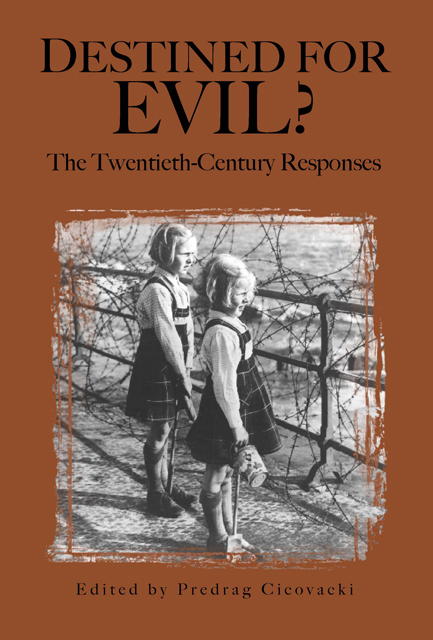Book contents
1 - Two Thousand Years and No New God
Published online by Cambridge University Press: 17 March 2023
Summary
Riots broke out in Los Angeles following the not-guilty verdict in the case of the police officers who were shown beating Rodney King, a black motorist, in a 1991 video. During the riots, another beating was videotaped, one that was the mirror image of the King beating, except for the fact that the attackers were not police officers. Two black men, Henry Watson and Damian Williams were arrested and tried for beating a white truck driver, Reginald Denny. Williams was acquitted of attempted murder and convicted of a lesser crime of felony mayhem. His lawyer argued that at the time of the beating Williams had been under the spell of a mob, and that as a result he was incapable of forming an intention to kill. Williams testified that the mob violence had a quasi-religious effect on him: “I was just caught up in the rapture,” he said, “as white men have, no doubt, been caught up in the ‘rapture’ of lynching.”
“A resurgence in religious violence has caught the post-cold war world off guard,” writes Michael Sells of other forms of violence into which all too many people in various parts of the world have descended. Writing long before the September 11, 2001, attack on the World Trade Center (and Pentagon), Professor Sells offered a brief litany, which included an earlier attack on the World Trade Center. “From the subways of Tokyo to the ruins of a mosque in India, from the World Trade Center and the federal building in Oklahoma City to a Jerusalem rally for the Israeli prime minister, religious militants have transgressed the boundaries of civil society in pursuit of their aims.” This catalogue appeared in the introduction to Sells’ book— The Bridge Betrayed: Religion and Genocide in Bosnia—which focused on the violence that had engulfed the former Yugoslavia after the collapse of the Soviet Union. Like other well-informed observers, Sells was quick to dismiss the comforting idea that these violent outbreaks were the result of “age-old antagonisms.” They represent something far more troubling than that, he insisted. “Herein lies the irony,” writes Sells, “the more obscene the crime, the less visible it is.
- Type
- Chapter
- Information
- Destined for Evil?The Twentieth-Century Responses, pp. 19 - 44Publisher: Boydell & BrewerPrint publication year: 2005

